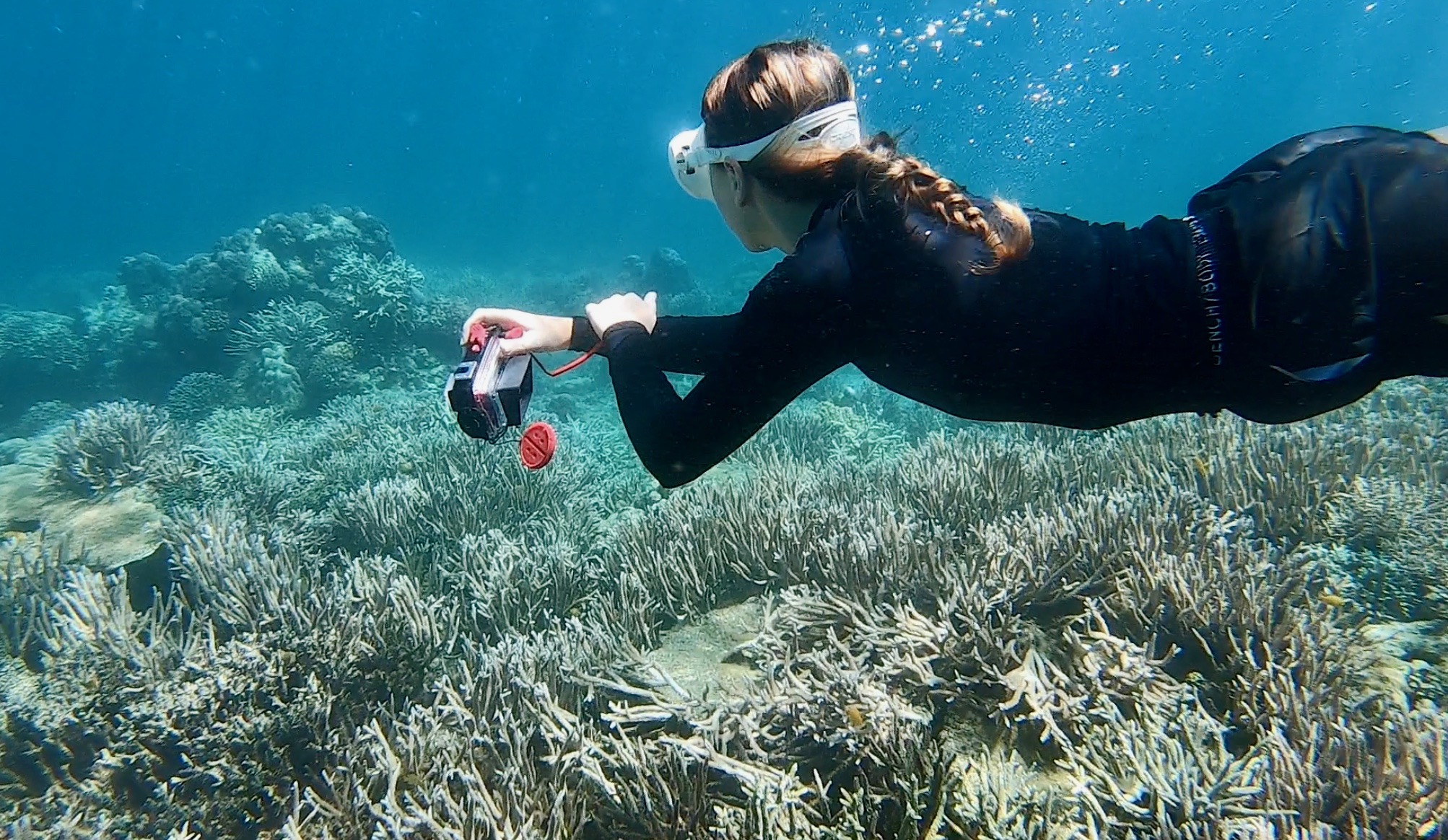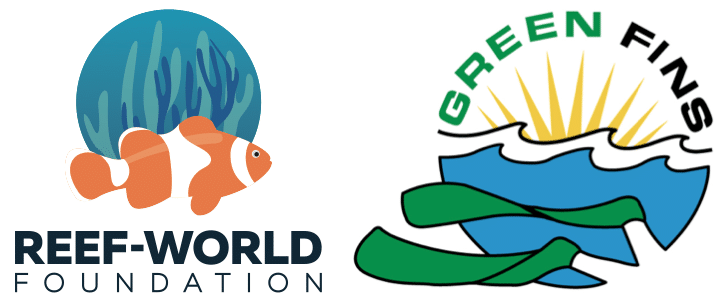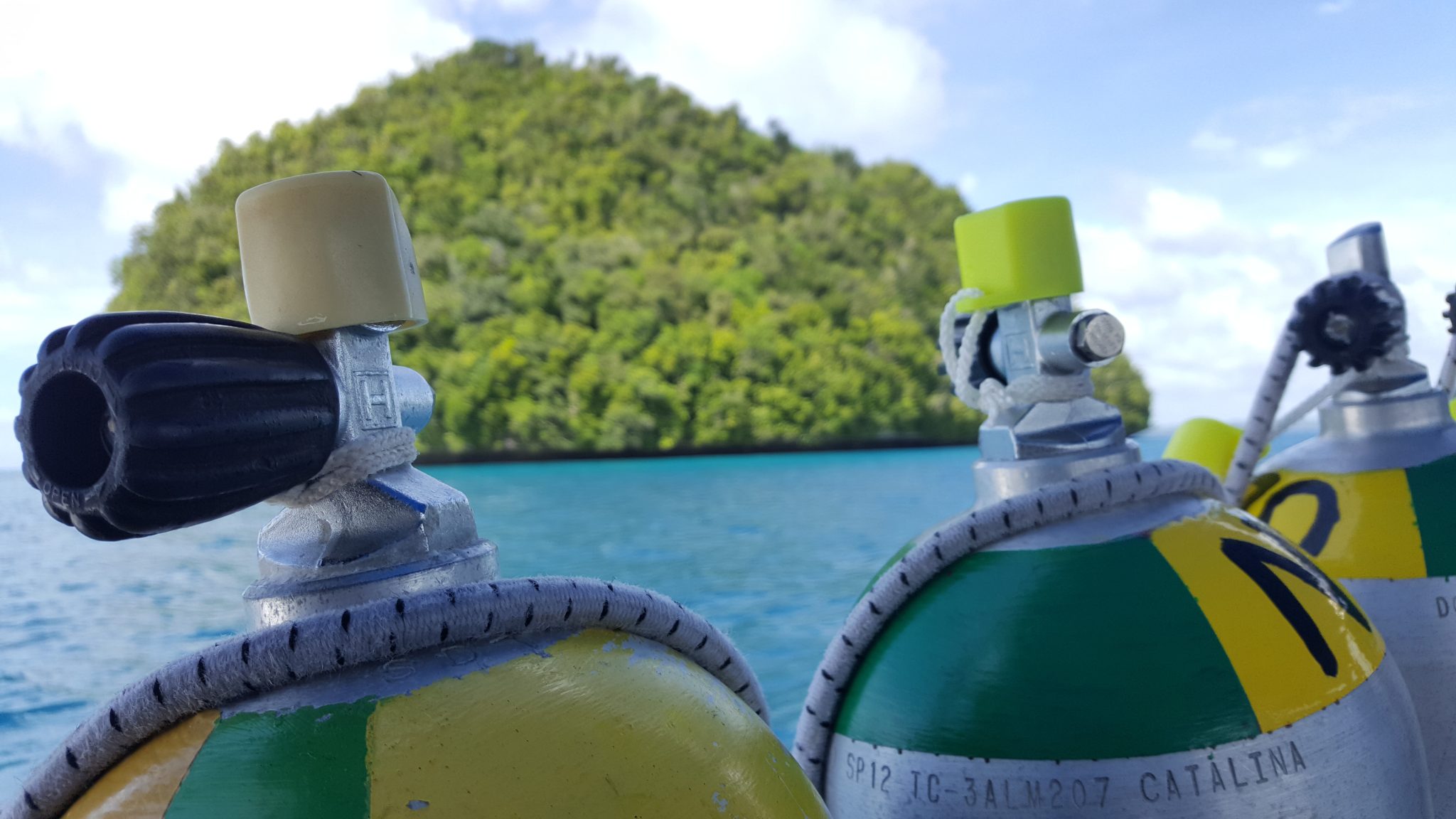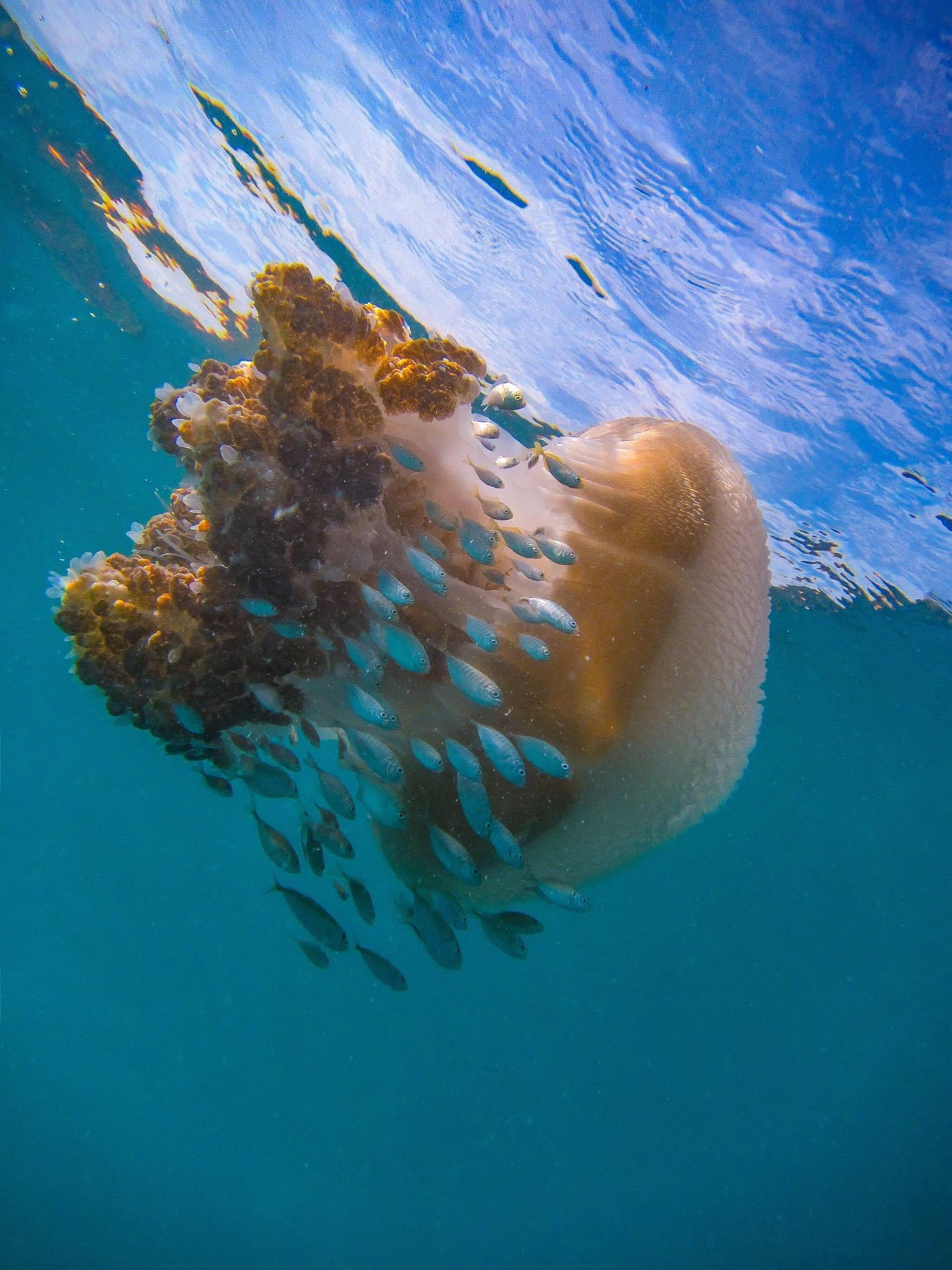Marine Life & Conservation
Coral reef protection to grow with the Green Fins Hub

 Sustainable marine tourism is receiving a major boost with the launch of the Green Fins Hub, a global digital platform for diving and snorkelling operators worldwide. The industry-backed digital platform is expected to scale up reach from about 700 operators across 14 countries today to a potential 30,000 worldwide, thus increasing coral protection and conservation worldwide.
Sustainable marine tourism is receiving a major boost with the launch of the Green Fins Hub, a global digital platform for diving and snorkelling operators worldwide. The industry-backed digital platform is expected to scale up reach from about 700 operators across 14 countries today to a potential 30,000 worldwide, thus increasing coral protection and conservation worldwide.
The Green Fins Hub is the first-ever global marine tourism industry platform, helping operators to make simple, cost-efficient changes to their daily practices by utilising tried and tested solutions, keep track of their annual improvements and communicate with their communities and customers. The tool has been developed by The Reef-World Foundation in partnership with the UN Environment Programme (UNEP) to overcome the biggest sustainability challenges in the marine conservation tourism industry.
“Coral reefs, home to at least 25 per cent of marine life, are the mecca for marine-related tourism, contributing up to 40 per cent or more of the gross domestic product in some island nations. However, they are a most vulnerable ecosystem, especially to climate change with the difference between a global temperature rise of 1.5 or 2 degrees Celsius being existential for reefs,” said Leticia Carvalho, Principal Coordinator, Marine and Freshwater at UNEP. “Increasing accessibility of best practice, knowledge and citizen science through this global digital hub can be a game changer in ensuring a future for coral reefs and other fragile marine ecosystems.”
The Green Fins Hub is the latest development by The Reef-World Foundation to meet a growing industry demand for environmentally-friendly underwater sports. The foundation recently surveyed over 2,400 dive tourists and professionals, of whom 83 per cent said they are looking for further sustainability education on their holiday, 75 per cent said they would pay more for it, but 85 per cent said that they find it difficult to see if an operator is sustainable.
The Green Fins Hub is intended to catalyse a seismic shift towards sustainability in the marine tourism sector, by hosting two types of Green Fins membership:
-
Digital membership that will be available to dive, snorkel and liveaboard operations globally. Throughout every year of membership, operators will receive environmental scores based on a detailed online self-evaluation and progress made on their action plans.
-
Green Fins Certified Members will continue to be assessed annually and trained in person at their operation. The assessment process will continue to be based on set criteria using a scoring system (0-330 point system, with a low score implying low impact of a business on coral reefs). As part of the Green Fins Hub, there will now be a minimum threshold (>200 of a maximum environmental impact score) for becoming a Green Fins Certified Member and a ranking of bronze, silver or gold certified members according to performance.
Additional features on the Hub include:
-
The Green Fins Community Forum for operators around the world to raise industry needs, discuss environmental issues and share lessons and ideas with like-minded industry leaders, NGOs and governments. For example, dive centres experiencing outbreaks of invasive species like the Crown-of-Thorns Seastar (COTS) at their dive sites can use the forum to gain the resources and expertise to take immediate conservation action.
-
The Green Fins Solutions Library gives access to over 100 proven environmental solutions to common daily operational challenges, tried and tested by the Green Fins network for over two decades.
-
The Action Plan: Members will receive an annual sustainability action plan with set goals. An advanced user interface now allows them to track their progress over time.
The Green Fins Hub has been co-created with key industry partners from around the world, to ensure it meets the needs of our stakeholders. Diver training agency, PADI, and its network have pioneered and financially backed this project from its inception. In addition, industry leaders including training agencies PSS, RAID, diver insurance company DAN, dive holiday booking platforms such as ZuBlu and PADI Travel, and a series of Green Fins Members from around the world have helped shape the platform throughout development.
Katie Thompson Global Director of Corporate Social Responsibility at PADI said, “As the world’s leading initiative dedicated to environmental guidelines that promote a sustainable diving and snorkelling industry, we knew that to reduce the global environmental footprint of scuba diving, we had to work closely with Reef-World’s Green Fins initiative. Since the beginning of our partnership in 2018, it’s been a major priority for us to make sure that all 6,600+ PADI Members across the globe have access to the low-cost and practical support that Green Fins membership provides. That’s why we have worked together to conceptualise and refine Green Fins Hub; now every one of our amazing PADI Members can join a community committed to positive change, and work towards a more sustainable future one step at a time.”
The development of the Green Fins Hub has been supported by numerous partners, another indication of the need for such a sustainability tool. Significant support was received from the Inter-American Development Bank through the Beyond Tourism Challenge, UNEP, the Matthew Good Foundation and Conservation X Labs.
“The Green Fins Hub is the solution the scuba diving industry needs to push sustainability efforts forward,” said Adam Broadbent, founder of ZuBlu, a leading dive travel booking platform “By digitalising environmental goal tracking, centralising countless sustainability resources, and encouraging collaboration between operators, the Hub is empowering us all to create a greener future for the big blue we all love.”
“We are very excited about this new development from Green Fins,” says Anais Lefrere, Business Development Manager at DUNE United, an international network of Liveaboards and Dive Centres. “The self-evaluation model on the Green Fins Hub will help us to identify environmental challenges within each of our partner operations and provide step by step support in addressing these. This will ultimately help us to mainstream environmental considerations across our whole brand and help us to demonstrate our commitment to sustainability.“
Marine Life & Conservation
Paul Watson Released as Denmark Blocks Japan’s Extradition Bid

Renowned anti-whaling activist Paul Watson has been released from custody in Greenland after spending five months in detention. Denmark’s Justice Ministry rejected Japan’s request for his extradition, citing insufficient guarantees that his time already served in custody would be credited against any potential sentence.
The 74-year-old Canadian-American was arrested on July 21 in Nuuk, Greenland’s capital, when his ship docked to refuel. His arrest was based on a 2012 Japanese warrant related to a 2010 encounter in Antarctic waters. Japan alleged Watson obstructed operations and caused damage to a whaling research ship during efforts to disrupt illegal whaling. Watson has consistently denied these claims, maintaining his commitment to marine conservation.
Denmark, which oversees extradition matters for Greenland, concluded that while the legal conditions for extradition were met, the lack of assurances from Japan regarding time-served credit made extradition untenable.
In a video shared by his foundation, Watson expressed gratitude and relief, saying, “After five months, it’s good to be out… and good to know they’re not sending me to Japan.” He added that the most difficult part of his time in custody was being separated from his two young sons.
Watson is a pioneering figure in marine conservation, known for founding the Captain Paul Watson Foundation in 2022 after decades of activism with the Sea Shepherd Conservation Society. His bold efforts to defend marine life have earned him widespread support, including from celebrities and conservationists. His work has also been featured in the acclaimed reality TV series Whale Wars.
Watson’s lawyer, Jonas Christoffersen, praised the decision, stating, “We are happy and relieved that Paul Watson is now free.” He added that Watson is eager to reunite with his family and continue his vital work.
The arrest occurred while Watson’s vessel, the M/Y John Paul DeJoria, was en route to the North Pacific with a team of 26 volunteers to intercept a Japanese whaling ship. His foundation described the arrest as politically motivated and emphasized that Watson’s actions were focused on ending illegal whaling practices.
Japan resumed commercial whaling in 2019 after leaving the International Whaling Commission, asserting that whale meat is a cultural tradition. Conservationists, however, continue to challenge these practices, highlighting their impact on marine ecosystems.
Despite the challenges, Watson remains steadfast in his mission to protect marine life and bring attention to whaling practices. His dedication to ocean conservation has made him a globally respected advocate for the environment.
Marine Life & Conservation
12 Days of Zero-Waste Fish-mas

This holiday period, the Marine Conservation Society, the UK’s leading ocean membership charity, invites you to make some simple changes to eating fish this Christmas to help our seas.
Dr Kenneth Bodles, Head of Fisheries and Aquaculture at the Marine Conservation Society, said, “During the festive season, our consumption increases, but so does waste. Sustainability isn’t just about where food comes from – it’s also about how you use it. By reducing waste and making the most out of your seafood, you’re not only taking steps to be more ocean-friendly, but can also help to cut costs during what is often one of the most expensive times of the year”.
The Marine Conservation Society has compiled twelve tips on how to consume seafood sustainably with zero-waste this Christmas:
Buy whole fish instead of fillets
Instead of fillets, consider buying whole fish such as salmon, hake, or lemon sole. By adopting a “nose to tail” approach with cooking, whole-baked fish not only feeds a crowd, but also helps to minimise waste and maximise sustainability by using up every part of the animal, including bones, skin, and fat.
Make fish stock
Leftover fish bones or shells can be put to good use by boiling them to make a nourishing fish stock or bisque. This can be frozen and preserved for later use and makes for a flavourful base in a soup.
Make your own fish pâté
Avoid waste by turning leftover fish, such as smoked mackerel or salmon, into a delicious pâté by blending with cream cheese and lemon. Perfect when paired with crackers.
The sustainability of salmon and mackerel varies depending on where and how it is caught or farmed. For more information on green-rated options, check the charity’s Good Fish Guide.
Buy frozen
By purchasing seafood that is frozen or vacuum-packed, this helps to reduce waste by extending the shelf life of your food.
Fish pie
If you’re wondering what to do with leftover cooked fish, why not opt for a classic fish pie with mashed potatoes, leeks, and a cheesy sauce? A sure crowd pleaser on Boxing Day.
Use the head
Don’t forget the fish head! The meat is incredibly tender and flavourful. The charity recommends a cod’s head curry or recreating Fallow’s renowned cod’s head in siracha butter.
By stretching your ingredients further, not only is this a more sustainable way to enjoy seafood, but also cost-effective by repurposing leftovers and cooking creatively.
Boxing Day brunch
Mix leftover kippers or smoked salmon with scrambled eggs for a tasty, zero-waste, Boxing Day brunch.
For best choice, make sure you buy kippers, or herring, from the North Sea and the North Irish Sea.
Zero-waste storage
A top tip from the Marine Conservation Society to avoid waste is freezing fish offcuts to save for future use.
Crisp up the skin
Even leftover fish skin can be turned into a quick savoury snack by crisping it up in an air fryer with a little olive oil and salt.
Anchovies two ways
Leftover anchovies can either be blended with butter to make a delicious anchovy butter or tossed into pasta for a hit of umami flavour.
The charity recommends opting for anchovies caught in the Bay of Biscay for best choice.
Fishcakes
For an easy, zero-waste meal, leftover seafood trimmings can be mixed with mash and fried in breadcrumbs to make fishcakes.
Pickled mussels
Try pickling mussels in 1:1 vinegar and water, with a dash of sugar for a sustainable, zero-waste snack that can be enjoyed well beyond the festive season.
Mussels farmed in the UK are a seafood superhero. Grown using low-impact methods and harvested by hand, they get all the food they need from the sea around them. This makes them one of the most sustainable, ocean-friendly, and cost-effective seafood options.
Players of People’s Postcode Lottery have raised £6.6M towards the Marine Conservation Society’s vital work in making seafood more sustainable.
Laura Chow, Head of Charities at People’s Postcode Lottery, said: “Fish is a festive favourite for many, but making sustainable choices when it comes to how we buy and eat seafood makes all the difference for our ocean. Support from players of People’s Postcode Lottery has helped the Marine Conservation Society further its sustainable seafood work, so that we can all enjoy healthier, better protected seas.”
The Marine Conservation Society encourages you to make sustainable seafood choices a year-round habit, not just for Christmas. To check how sustainable the seafood on your plate is, you can visit the charity’s Good Fish Guide. The Guide helps consumers and businesses identify the most sustainable seafood using a simple traffic light system, based on where and how species are caught or farmed. Green is the best choice, amber means improvements are needed, and red indicates fish to avoid buying.
Zero-waste gift idea
Why not embrace a zero-waste Christmas by gifting a membership to support marine conservation? It’s a meaningful, low-waste gift that helps protect our ocean for generations to come. Memberships start from as little as £5 a month – the price of a sandwich and drink from your local coffee shop.
Find the latest sustainable seafood advice for wild-caught and farmed seafood on the Good Fish Guide, downloadable to your phone from www.mcsuk.org/goodfishguide.
-

 News2 months ago
News2 months agoIconic SS United States to become the World’s Largest Artificial Reef
-

 News3 months ago
News3 months agoBook Review – 52 Assignments: Underwater Photography
-

 Gear News3 months ago
Gear News3 months agoDYNAMICNORD – New German diving brand enters the British market
-

 News3 months ago
News3 months agoExploring Cenote El Pit: A Diver’s Dream
-

 Gear News3 months ago
Gear News3 months agoTry BARE drysuits (and maybe even win one!) this Friday with Sea & Sea at North West Dive Fest
-

 Marine Life & Conservation3 months ago
Marine Life & Conservation3 months agoBook Review: Coral Triangle Cameos
-

 Blogs2 months ago
Blogs2 months agoDive the Egyptian Red Sea this Autumn with Regaldive
-

 News3 months ago
News3 months ago2024 Ocean Art Underwater Photo Competition Announced

















